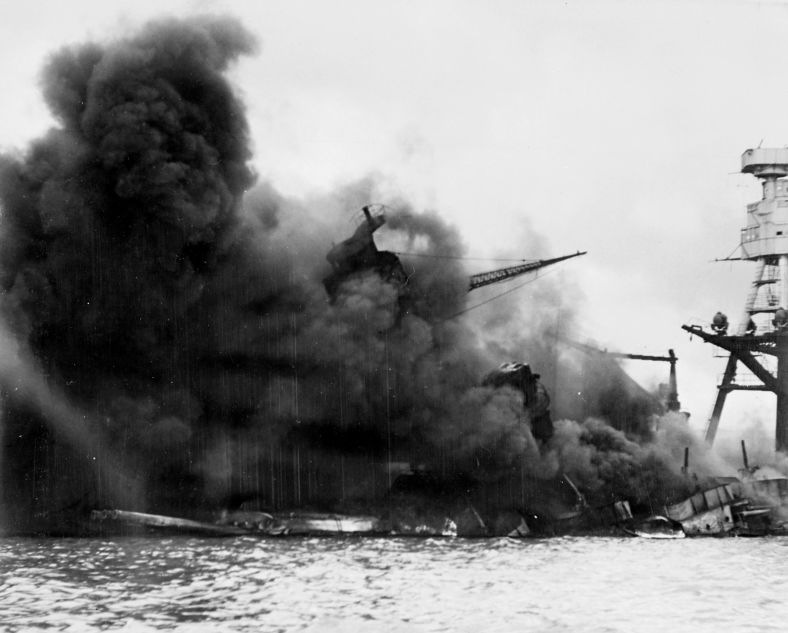On 20 July 1946, the Joint Committee on the Investigation of the Pearl Harbor Attack presented a report analysing Japan’s attack of the United States.
The committee, chaired by Senator Alben Barkley, examined the circumstances surrounding the first episode of the war for America in the Pacific Ocean theatre. The committee’s objectives included assessing the guilt of US officials, determining why America had not been prepared for aggression and establishing to what extent the Roosevelt administration had incited or provoked Japan.
The commission investigated every circumstance, including the actions of every high-ranking official and every government agency dedicated to US security.
After examining the facts, the 10-member committee declared Roosevelt - who had died the year before in April - innocent and absolved him of any responsibility for the incident. The report said “the committee found no evidence proving that the President, Secretary of State or Secretary of War had deceived, provoked, incited, or forced Japan to attack the US to facilitate the declaration of war by the Congress”.
However, the committee also revealed weaknesses in how the US military interacted. The committee placed much of the blame for Pearl Harbor Admiral Husband Kimmel who, at the time of the attack was a four-star admiral and commander in chief of the US Pacific fleet. The committee found that Kimmel had failed the defence and had lost control. Admiral Ernest King added that Kimmel had not shown the insight which his position required. Kimmel and his supporters claimed that they had not been provided with intelligence data and that the admiral had been made a scapegoat for mistakes made by his superiors. As a result of the committee’s work, the decision to establish the United States Department of Defense was made. The report became a milestone in the history of the US military.
Source:
World War II in the Pacific. An Encyclopedia. Edited by Stanley Sandler. - Garland Publishing, Inc., New York & London. - 2001.
























